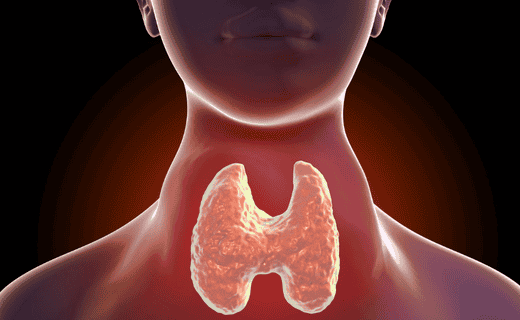
Your thyroid may be small, but it has a big job. This butterfly-shaped gland at the base of your neck produces hormones that regulate metabolism, energy levels, mood, and many other essential functions. When the thyroid is out of balance, the effects can ripple through your entire body. If you’ve been feeling exhausted, noticing unexplained weight changes, experiencing hair loss, or dealing with mood swings, these could be signs you may have a thyroid problem. Recognizing these changes early can make a big difference in how quickly you find answers and treatment.
Fatigue That Doesn’t Go Away
One of the most common signs of a thyroid issue is persistent fatigue. Even if you’re getting enough sleep, you may feel drained throughout the day. Hypothyroidism (an underactive thyroid) slows your metabolism, leaving you with low energy. On the other hand, hyperthyroidism (an overactive thyroid) can cause restless nights and insomnia, which also contribute to daytime exhaustion. When tiredness becomes a regular part of your everyday life, despite maintaining good sleep habits, it could be a sign that your thyroid isn’t functioning correctly.
Unexpected Weight Changes
If you’re gaining weight without changing your diet or exercise routine, your thyroid may be a contributing factor. An underactive thyroid slows metabolism, making it harder to burn calories. On the flip side, an overactive thyroid speeds things up, sometimes leading to sudden weight loss even if you’re eating normally or even more than usual. These weight fluctuations are among the most evident signs that you may have a thyroid problem, and they often raise red flags for doctors during diagnosis.
Hair Loss and Dry Skin
Thyroid hormones play a crucial role in regulating hair growth and skin health. When the gland is underactive, hair can become dry, brittle, and thin, often leading to noticeable hair loss. Hyperthyroidism can also trigger shedding due to rapid changes in the hair cycle. Alongside hair issues, you may notice dry, rough, or itchy skin, which can feel frustrating and challenging to manage with regular skincare routines. If you’re experiencing both hair loss and skin changes at the same time, your thyroid may be the cause.
Mood Swings and Mental Health Changes
Your thyroid is deeply connected to your mood and mental health[1]. An underactive thyroid can make you feel sluggish, down, or even depressed, while an overactive thyroid may lead to nervousness, irritability, or anxiety. Some people also report difficulty focusing, memory problems, or feeling mentally foggy. These emotional and cognitive changes can affect work, relationships, and daily life, which is why it’s important not to dismiss them as just “stress” or “getting older.”
Sensitivity to Temperature
Another common clue is how your body reacts to temperature. People with hypothyroidism often feel unusually cold, even when others around them are comfortable. On the other hand, those with hyperthyroidism may feel overly hot or sweat excessively. This change in temperature sensitivity occurs because thyroid hormones directly regulate the body’s production of heat and energy. If you suddenly find yourself piling on sweaters or constantly reaching for the fan, your thyroid may be sending you a signal.
Digestive Changes
Your thyroid also plays a role in digestion. Hypothyroidism tends to slow down the digestive system, often causing constipation, bloating, or a feeling of sluggishness in the stomach. Hyperthyroidism, however, speeds things up, sometimes leading to more frequent bowel movements or diarrhea. If you’ve noticed ongoing digestive changes that don’t seem connected to your diet, your thyroid could be behind them.
Swelling in the Neck
Because the thyroid sits at the base of your neck, visible swelling in this area—known as a goiter—can sometimes occur. This swelling may be due to thyroid enlargement, nodules, or other related conditions. It can cause discomfort, tightness, or even difficulty swallowing. While not every thyroid problem results in a noticeable lump, any unusual swelling in the neck should be checked by a healthcare provider.
Menstrual and Fertility Changes
For women, thyroid issues can affect the menstrual cycle and fertility. Hypothyroidism may cause heavy, irregular periods, while hyperthyroidism may lead to lighter or missed cycles. Both conditions can disrupt ovulation, making it harder to conceive. Because reproductive health is closely linked to hormonal balance, thyroid health is often evaluated when women report cycle changes or difficulties with fertility.
Changes in Heart Rate
Your thyroid helps regulate your heart rate, so that noticeable changes can be a sign of an imbalance. Hyperthyroidism often causes a rapid heartbeat, palpitations, or an irregular rhythm. In contrast, hypothyroidism can slow your heart rate, sometimes making you feel sluggish or faint. If you frequently feel your heart racing or notice unusual changes in your pulse, it’s worth checking with a healthcare professional to rule out thyroid involvement.
Muscle Weakness and Joint Pain
Muscle weakness, cramps, or joint pain can sometimes be linked to thyroid problems. Low thyroid hormone levels can slow muscle repair and reduce strength, while high levels can cause muscle breakdown over time. If you’ve been feeling weaker, experiencing frequent cramps, or noticing more aches and pains without an apparent cause, it could be another indicator that your thyroid needs attention.
In conclusion, the thyroid might be small, but when it’s not functioning correctly, the signs can be surprisingly widespread. From fatigue and weight changes to mood swings, hair loss, digestive issues, and more, the signs you may have a thyroid problem touch many areas of life. If you recognize several of these symptoms in yourself, it’s essential to seek medical advice. With proper diagnosis and treatment, thyroid conditions can be effectively managed, helping you regain your sense of well-being.
Disclaimer
This article is for general informational purposes only and should not replace professional medical advice. If you’re experiencing symptoms of a thyroid problem, consult with a qualified healthcare professional for proper testing and treatment.
